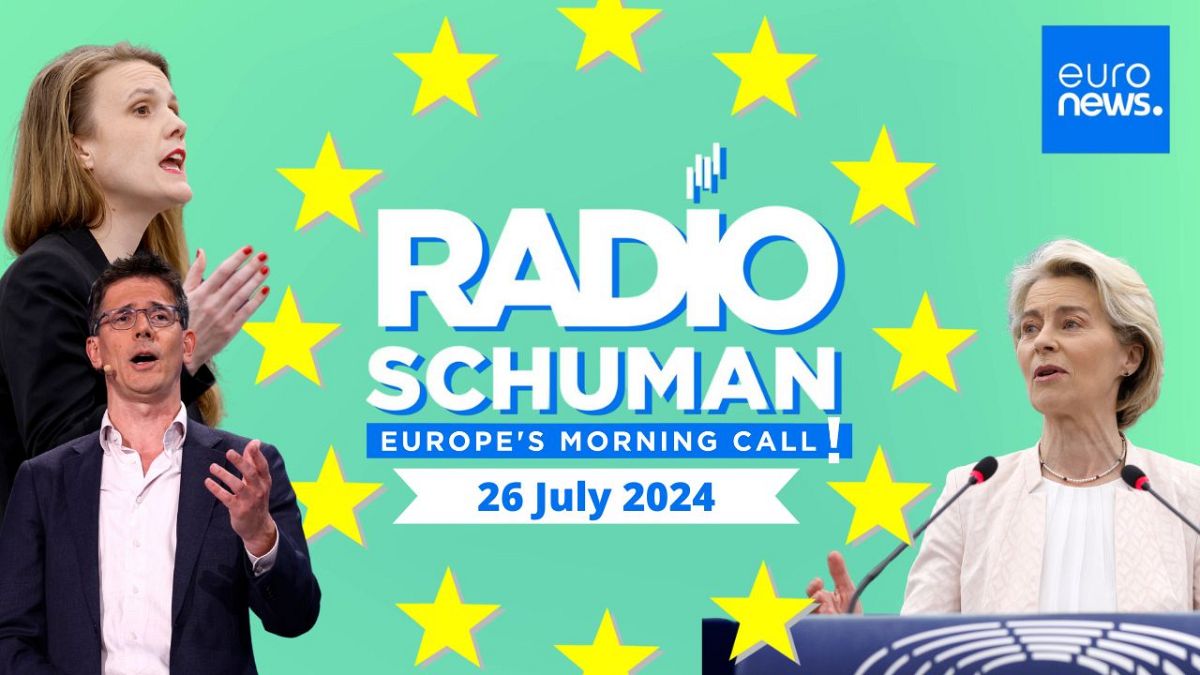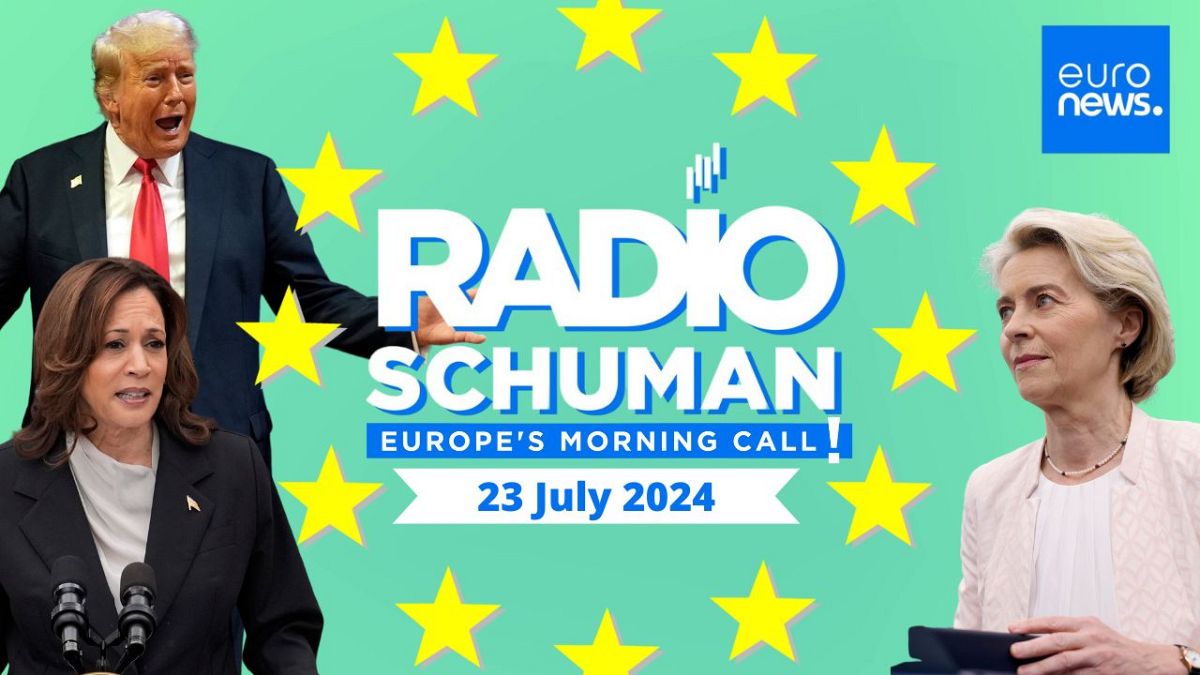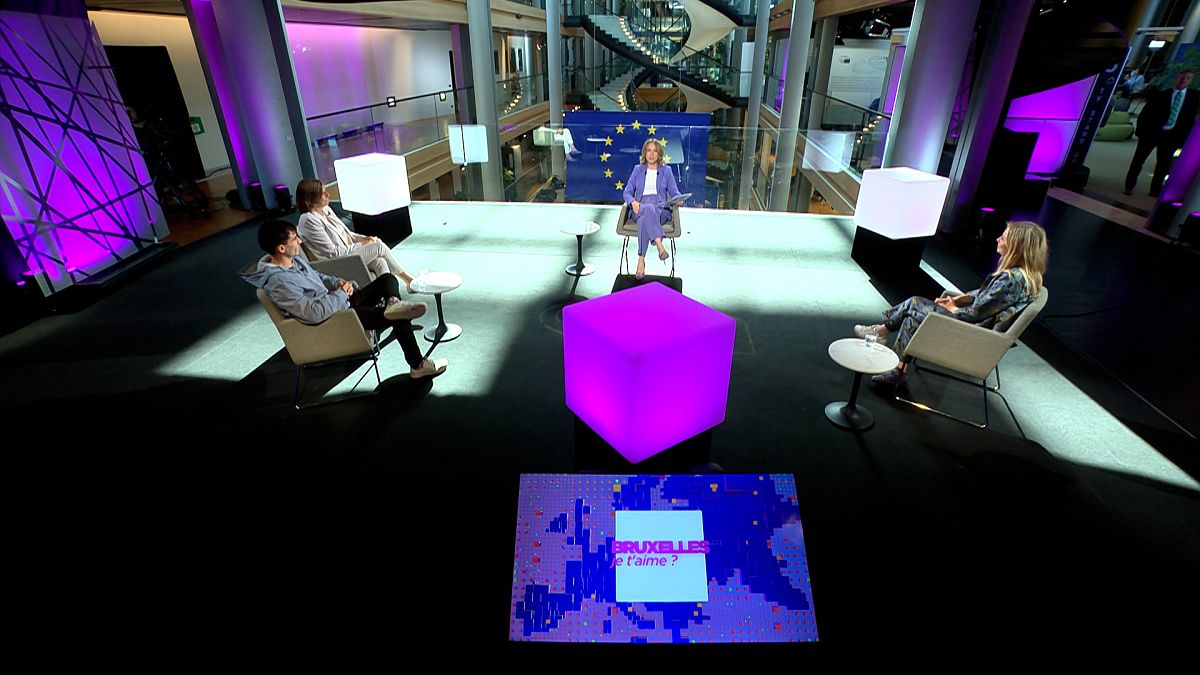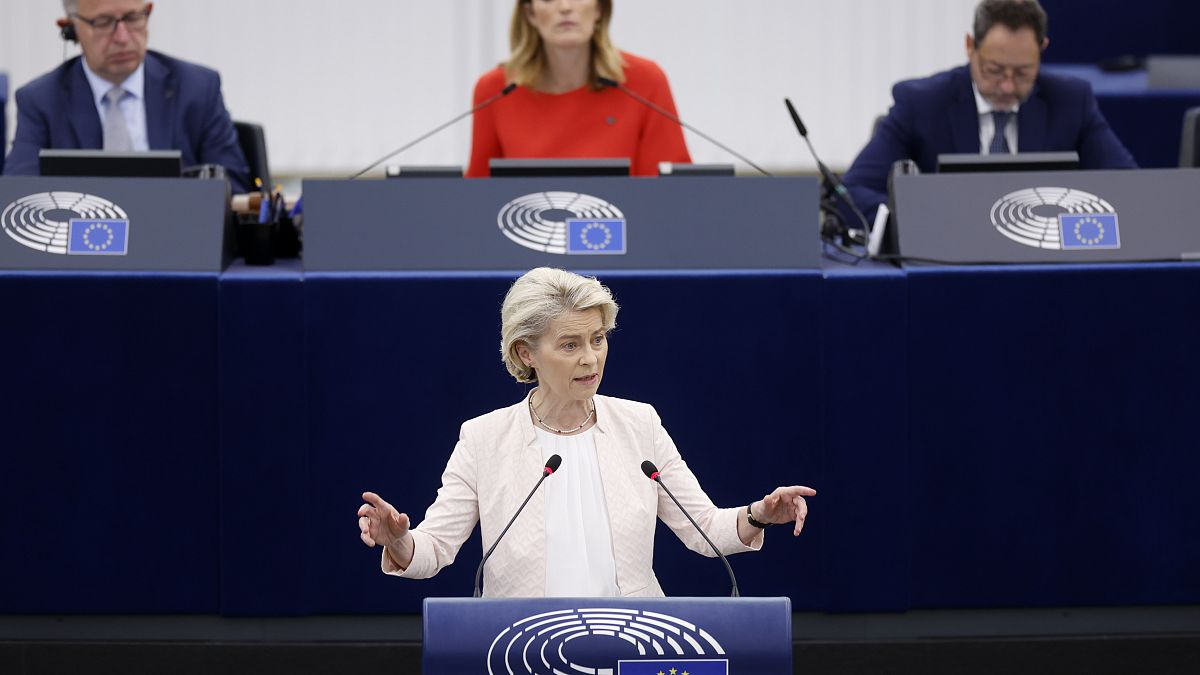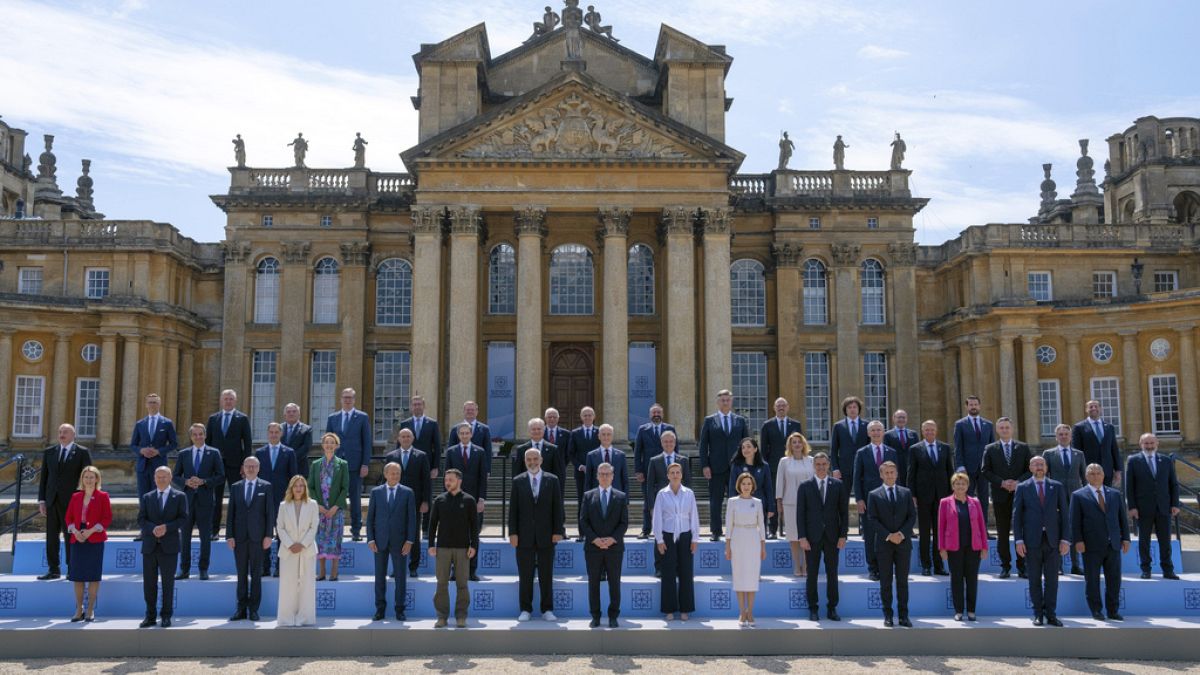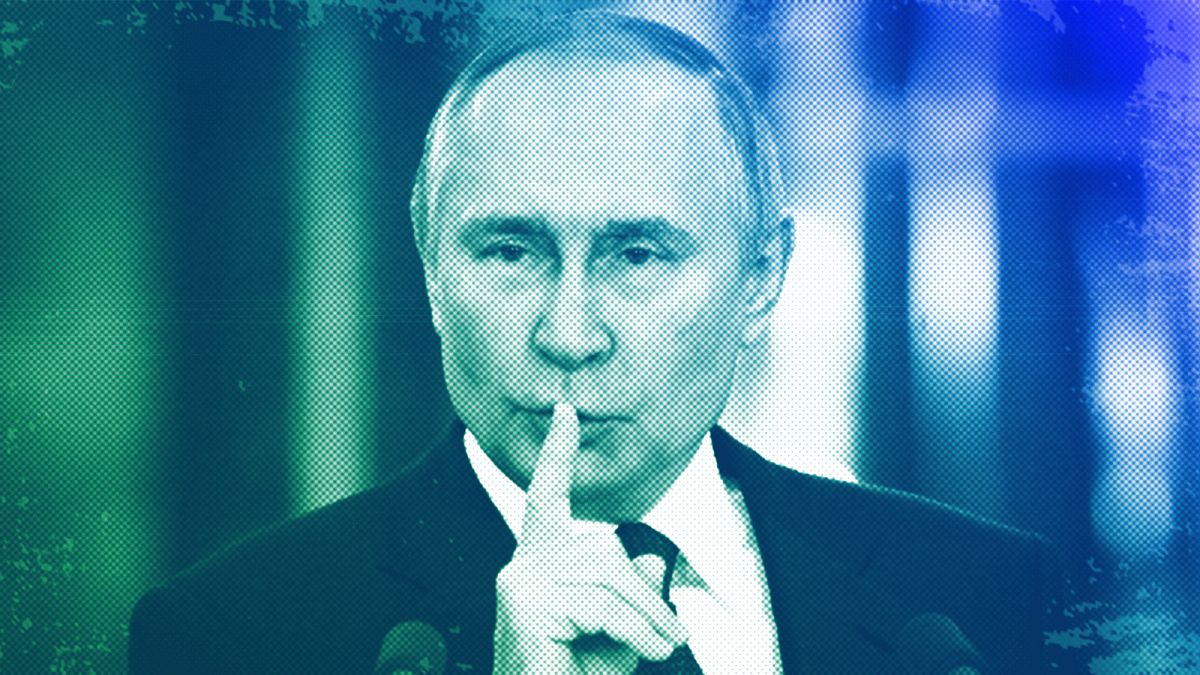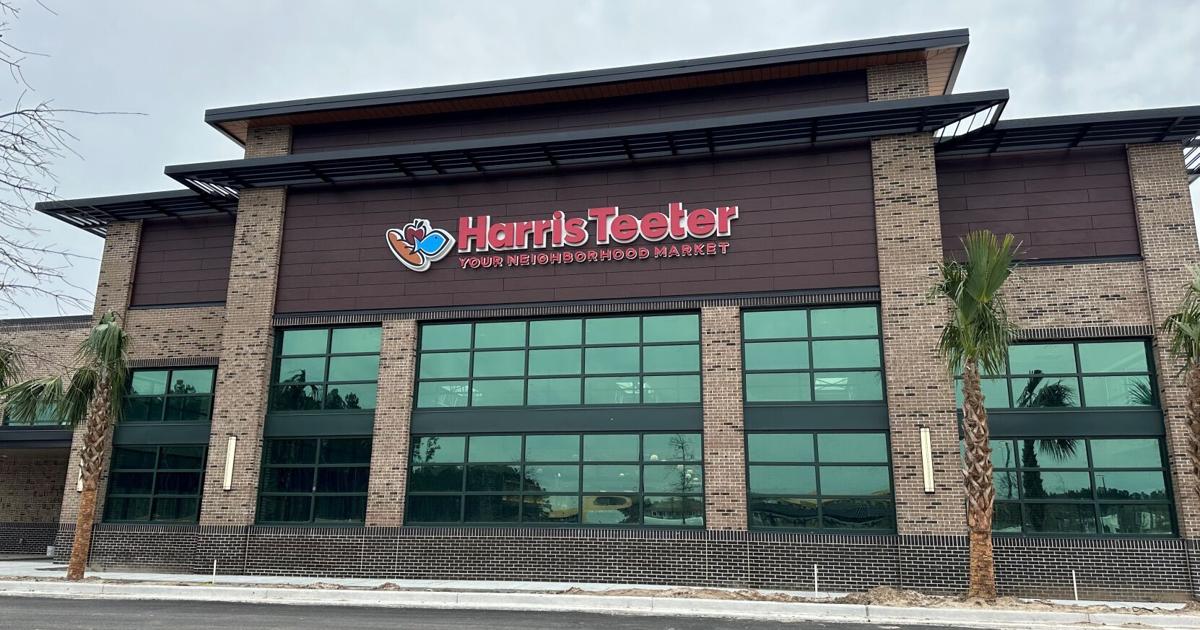World
Von der Leyen: Too right for the left and too left for the right?
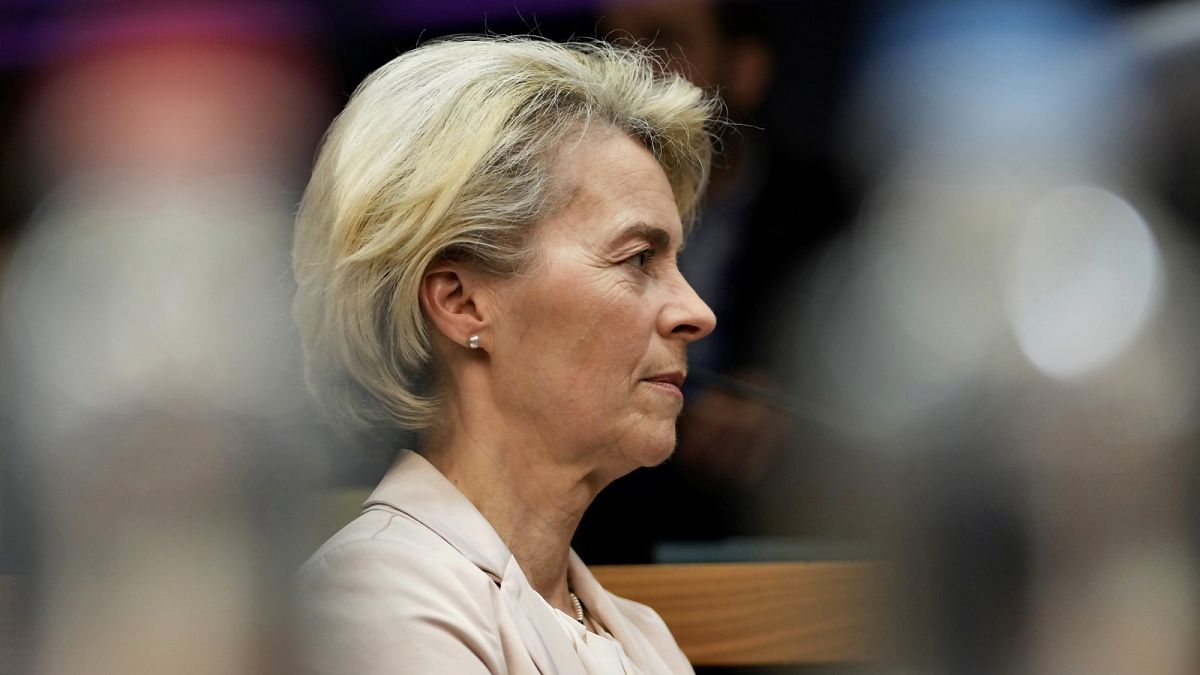
Ursula von der Leyen has presided over the most transformative years of the European Union in recent memory. But after weathering a string of extraordinary crises, her ideology might have gotten lost along the way.
Von der Leyen has had few quiet days since moving to Brussels. Just three months after assuming office as the first female president of the European Commission, her executive was faced with a global pandemic that killed millions, brought the economy to a standstill and left wealthy governments scrambling to get hold of basic medical supplies.
The formidable test turned the president into a crisis manager, a position she initially struggled with but later appeared to rejoice. She was then tasked with guiding the bloc through Russia’s invasion of Ukraine, a painful energy crunch, a steady rise in irregular migration, a combative China, ubiquitous online threats and the mounting devastation wreaked by climate change.
Now, after almost five years of emergencies, von der Leyen wants a second chance at the very top: she is running as the lead candidate, or Spitzenkandidat, for her policy family, the centre-right European People’s Party (EPP), to preside over the Commission for another term. With the EPP projected to emerge victorious at the June elections, the odds are in von der Leyen’s favour.
As the campaign intensifies, so does the scrutiny over her legacy and ambitious policies. Did she fulfill her promises or did she break them? Can she be trusted? These are legitimate questions for a candidate seeking to rule the bloc’s most powerful institution. But the scrutiny inevitably extends to a more enigmatic question surrounding von der Leyen: Is she still a conservative?
In her speech during the EPP congress in March, she referenced World War II and touched upon a variety of topics, such as family values, security, border controls, economic growth, competitiveness and farmers, all of which tend to resonate well with right-wing voters.
Notably, though, the intervention featured only one mention of Christian Democracy. The word “conservative” was nowhere to be found.
Even more notable was the scathing letter the French delegation of the EPP had sent ahead of the congress in Bucharest, opposing von der Leyen’s nomination. Les Républicains (LR) lambasted the German for her “technocratic drift,” “de-growth policies” and failure to control “mass migration.”
“A candidate of Mr Macron (The French president) and not the right, she has continuously left the European majority drift towards the left,” the letter read.
A few days earlier, socialists had gatheredin Rome for their own congress during which Iratxe García Pérez, the chair of the Socialists & Democrats (S&D), was asked if her group would support von der Leyen, the indisputable frontrunner, for a second term.
García Pérez said her group was open to negotiating but insisted they would not back a contender “who doesn’t accept our policies.” She then went on an extensive denunciation of the EPP for abandoning the mainstream and embracing talking points of the far right. “This is a real danger,” she told journalists.
Consensus vs ideology
With the right and the left hardening their positions ahead of the elections, von der Leyen’s accomplishments appear caught in the middle.
The last five years have seen the Commission designing policies that cater to the right, including a sweeping reform to speed up asylum procedures, harsher penalties for human traffickers, deals with neighbouring countries to curb irregular migration, plans to boost the defence industry and a toolbox to address demographic changes.
On the other hand, von der Leyen’s executive has spearheaded initiatives warmly welcomed by the left, such as a €100-billion scheme to sustain employment during the pandemic, new rules to improve the conditions of platform workers, standards to ensure adequate minimum wages, a pioneering law to protect journalists from state interference, the first-ever LGBTIQ strategy and, most crucially, the European Green Deal, a vast set of policies aimed at making the bloc climate-neutral by 2050.
But pigeonholing her proposals into an ideological sphere fails to give a complete picture of von der Leyen’s true creed. Instead, they serve as a reminder of the particular nature of the European Commission, an institution that, according to the Treaties, is independent and meant to promote the bloc’s general interest.
By constantly negotiating with the Parliament and member states, the president has no choice but to give preference to consensus over ideology, says Fabian Zuleeg, the chief executive of the European Policy Centre (EPC).
“She has been, in many cases, very much a crisis manager. Certainly with COVID and with Ukraine. It wasn’t so much, in the first instance, about ideology. It was about reacting. But, of course, certain preferences have come through. But this has been very much in the interplay with member states,” Zuleeg said in an interview.
“From a European perspective, pragmatism is the name of the game. You have to have pragmatic compromises, so you can bring enough on board to get things through.”
Some of von der Leyen’s flagship actions, such as de-risking from China, reining in Big Tech, financial support for Ukraine, the revival of enlargement and the joint procurement of vaccines, further blur the line, as they can appease both sides of the spectrum.
Instead of treating these sensitive issues through a partisan lens that risks polarisation and dissent, von der Leyen frames them as “European challenges” that require “European solutions,” a vague but catchy wording that she often employs to defend her policy interventions and remain above the fray.
“What has been much more characteristic of (her tenure) is that she has very much pushed this idea of European solutions to all of these issues,” Zuleeg notes. “And in some cases, it’s actually very difficult to say when you look into the details: Is this really left or right? I don’t think you can easily distinguish between the two.”
‘Queen Ursula’
Von der Leyen’s careful pragmatism only compounds the mystery surrounding her political beliefs, despite the high profile and media coverage she has amassed over the past five years.
Nathalie Tocci, director of the Istituto Affari Internazionali (IAI), identifies three ideological tenets that can be attached to von der Leyen: a strong commitment to European integration, a strong commitment to the Transatlantic alliance and a strong commitment to Israel, the last of which responds to her German background.
“I cannot imagine a world in which she would give up those convictions,” Tocci told Euronews. “I think the rest is really up for grabs.”
Von der Leyen, Tocci says, has been willing to reformulate her agenda and narrative “out of convenience”. When she faced the Parliament in 2019 for a nail-biting confirmation vote, she bet big on the Green Deal, invoking the climate movement that back then was making headlines. Four years later, she rushed to propose exemptions to the Green Deal in a bid to quell farmer protests.
Migration is another field in which the president has swayed between a humanist perspective, speaking sympathetically about the plight of asylum seekers, and a hardline approach, calling for stricter controls and signing deals with authoritarian regimes.
“Depending on what the political trend of the day is, she could be either relatively open and liberal towards migration or she could be somewhat conservative,” Tocci says. “These are things where I don’t think she has very firm convictions.”
An EU official, who requested anonymity to speak candidly, expressed a similar view, saying von der Leyen switches between “ideological positions opportunistically, aligning herself with whatever suits her convenience and interests at the time.”
“Coherent policy implementation has been noticeably absent, with actions often appearing more geared towards seizing photo opportunities than addressing substantive issues,” the official said, speaking of “political ambiguity.”
These complaints are commonplace in Brussels. Although von der Leyen has been widely praised for her determined leadership, ambitious vision and energetic rhetoric – skills that come in handy to weather crises –, she has been repeatedly criticised for pushing through the legislative cycle with little to no consultation beyond her closely-knit circle of advisors, some of whom she brought directly from Berlin.
Her penchant for centralisation, her aloof character and her avoidance of controversial subjects have garnered her the nickname of “Queen Ursula” in Brussels, which her calculated not-too-right, not-too-left campaign is bound to reinforce.
“She was progressive on climate because she needed those green votes to get elected,” Tocci said. “This was, in a sense, the price to pay. Now, does this mean that she didn’t believe in this at all? No, not necessarily. But does it therefore mean that she firmly believes in it? Not necessarily either.”
“She’s not ideologically committed,” Tocci went on. “So if she now needs conservatives to vote for her – well, then she will be conservative.”

World
Celine Dion Makes Triumphant Comeback at Paris Olympics Opening Ceremony — Watch Full Performance

ad
World
95 Libyan nationals arrested in South Africa at suspected secret military training camp
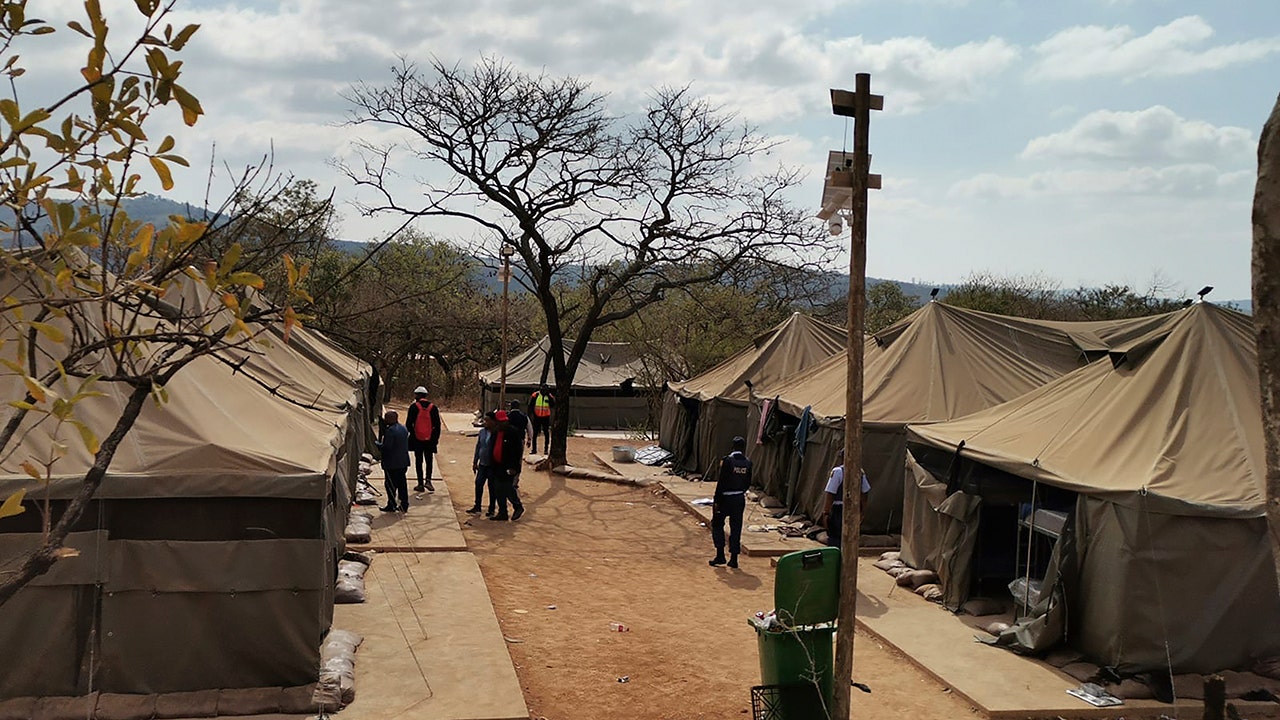
South African police arrested 95 Libyan nationals in a raid on a suspected secret military training camp on Friday and authorities said they were investigating whether there were more illegal bases in other parts of the country.
The camp was discovered at a farm in White River in the Mpumalanga province, about 360 kilometers (220 miles) northeast of Johannesburg, police said.
ELEPHANTS KILL TOURIST IN SOUTH AFRICA AFTER HE TRIED TO GET CLOSE TO TAKE PICTURES
National police spokesperson Athlenda Mathe said in a post on the social media site X that the Libyans stated they had entered the country on study visas to train as security guards, but police investigations suggest they have received military training.
The Newzroom Afrika TV news channel broadcast pictures of the site of the arrests, showing a military-style camp with large green and khaki tents set up in a row. Dozens of men were seen lining up as they were arrested. They were wearing civilian clothing.
Local government official Jackie Macie said investigations were ongoing and the owner of the farm would be questioned. He said authorities received information that there were similar secret camps near two other towns in Mpumalanga province.
A camp where 95 Libyan nationals were arrested on suspicion of running an illegal military camp are seen lining up after their arrest on Friday, July 26, 2024 in White River, South Africa. Police say that 95 Libyan nationals were arrested on suspicion of receiving training at a secret military camp in the north of the country. (AP Photo/Bulelwa Maphanga)
The province borders neighboring countries Mozambique and Swaziland and is an area of concern for South African authorities with regards to illegal immigration.
Police and authorities have not said whether the camps are suspected of being connected to a particular group or conflict.
Macie said investigations would establish if there was a network of camps in South Africa and show “why they are here doing military training in our country.”
Police said the men may be linked to crimes reported in communities close to the farm in recent months.
“We have serious cases which have been opened with the police, including cases of rape and armed robberies, which complainants claim were committed by unknown foreigners who seem to be of Asian descent,” said police spokesman Donald Mdhluli.
“We take what we have found here today very seriously because we don’t know who was training them, what were they being trained for and why that training is happening here in South Africa. It may be a threat not only to South Africa but also to the entire southern Africa region.”
Police said the operation to arrest the Libyans and close down the camp began two days ago. Macie said the Libyan nationals had been in the country since at least April.
“The 95 individuals taken into custody are all Libyan nationals and are currently being questioned by the relevant authorities,” Mpumalanga acting provincial police commissioner Maj. Gen. Zeph Mkhwanazi said in a statement.
Mdhluli, the police spokesman, said the country’s security regulator had confirmed that the kind of training that appears to have been taking place at the camp was well beyond the scope of training for security guards.
“The kind of equipment we found here shows that there was intense military training taking place here. This was basically a military base.”
World
Passengers face long, uncertain wait at stations amid rail disruption

A deliberate fire in a signal box about 60 km south of Lille caused the disruption on the northern high-speed line, with traffic halted around 5 a.m. local time on Friday.
Travel was severely disrupted in Lille on Friday, one of the stations affected by the sabotage that hit major French rail lines ahead of the Paris Olympics opening ceremony.
Many passengers waited with hope that soon turned to resignation.
“We’ve been waiting since 10:38 a.m. for the 11:38 a.m. train, and now we’re just waiting for it to arrive at 2:08 p.m.,” said Delphine, one of the stranded passengers.
“It’s still quite a delay, and we’ll be even later since we’re on a secondary route. I work in Avignon at 9 p.m., so it’s going to be very, very tight. We have a concert tonight — will it even happen? This is all very confusing, and we don’t understand what’s going on.”
For one traveller, this was a rough start to the holidays. “The worst case would be if the train is cancelled entirely and we have to buy new tickets for next week. It would shorten our already brief vacation. That would be a huge problem,” said Hippolyte.
When asked if he had been informed of the delays, Hippolyte said he received the notification just before departure.
“At around 10 a.m. this morning, we were told we were an hour late and would be leaving at 1 p.m.”
“It just keeps getting later as the day goes on. Every time we approach the new departure time, it gets pushed back another hour and a half, or half an hour each time.”
A deliberate fire in a signal box about 60 km south of Lille caused the disruption on the northern high-speed line. Traffic was halted around 5 a.m. on Friday.
The recent acts of sabotage on the rail network highlight that the Olympic Games are turning France into a prime target.
The attack disrupted the transport system on the opening day of the Games, causing delays of up to two hours or even cancellations that affected hundreds of thousands of passengers nationwide.
Authorities in Paris have said they are deploying substantial human resources to counter any threats and to ensure the safety of the events.
-

 World1 week ago
World1 week agoOne dead after car crashes into restaurant in Paris
-

 Midwest1 week ago
Midwest1 week agoMichigan rep posts video response to Stephen Colbert's joke about his RNC speech: 'Touché'
-

 News1 week ago
News1 week agoVideo: Young Republicans on Why Their Party Isn’t Reaching Gen Z (And What They Can Do About It)
-

 News1 week ago
News1 week agoIn Milwaukee, Black Voters Struggle to Find a Home With Either Party
-

 Politics1 week ago
Politics1 week agoFox News Politics: The Call is Coming from Inside the House
-

 Movie Reviews1 week ago
Movie Reviews1 week agoMovie Review: A new generation drives into the storm in rousing ‘Twisters’
-

 News1 week ago
News1 week agoVideo: J.D. Vance Accepts Vice-Presidential Nomination
-

 World1 week ago
World1 week agoTrump to take RNC stage for first speech since assassination attempt
